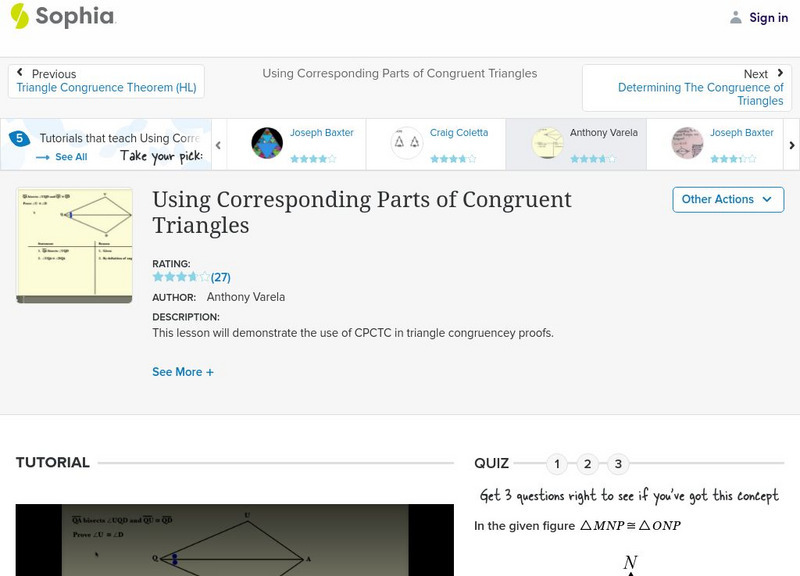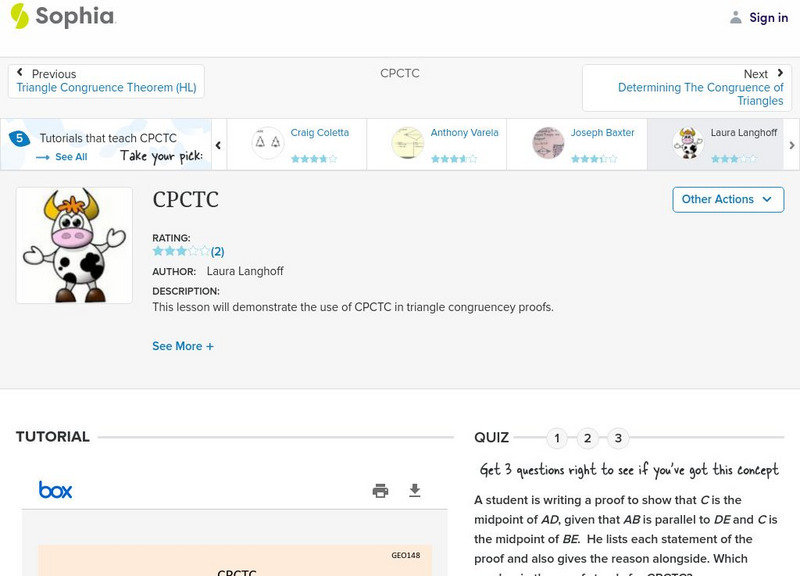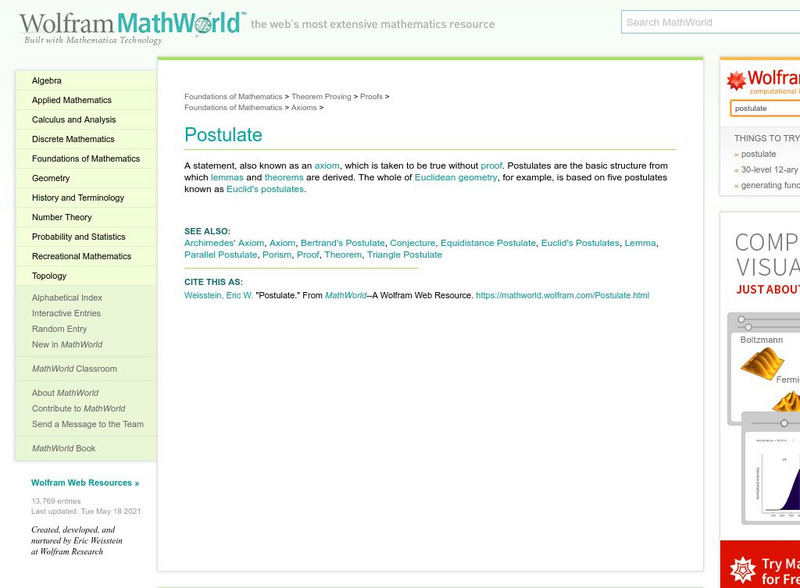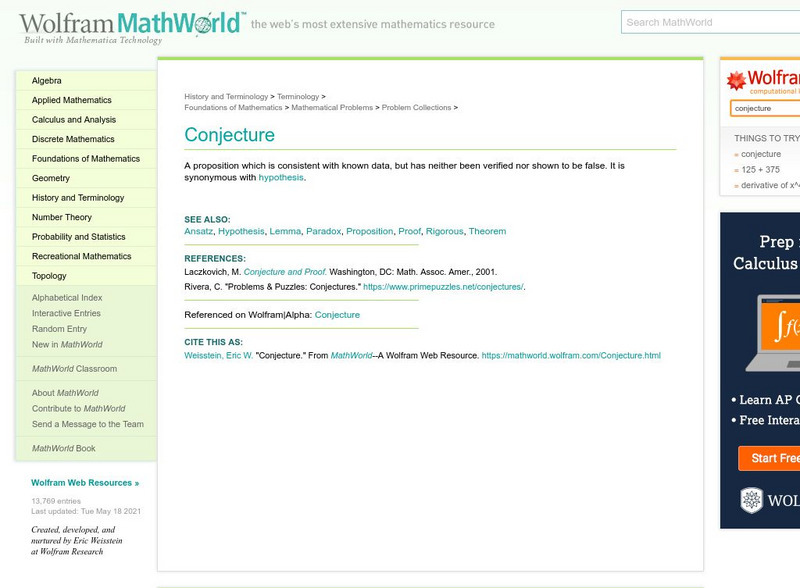Sophia Learning
Sophia: Using Corresponding Parts of Congruent Triangles
This lesson will demonstrate the use of CPCTC in triangle congruency proofs.
Alabama Learning Exchange
Alex: Growing in a Triangle
Middle school middle schoolers explore the Pythagorean Theorem by measuring and calculating diagonal lengths using the Pythagorean Theorem. Students view an animated proof of the Pythagorean Theorem. They access an Internet site to view...
Math Open Reference
Math Open Reference: Biography of Pythagoras
Biography of Greek mathematician, Pythagoras, who lived from 569 BC to approximately 475 BC. His theory, known as the Pythagorean Theorem continues to be of interest to mathematicians and has more than 400 different proofs.
Alabama Learning Exchange
Alex: Geometrica Fights Back!
This activity is designed to give students practice with the properties of special quadrilaterals (parallelograms, rectangles, rhombuses, squares, trapezoids, and kites). The students are provided with a "murder mystery" sheet with...
Sophia Learning
Sophia: Cpctc: Lesson 2
This lesson will demonstrate the use of CPCTC in triangle congruencey proofs. It is 2 of 4 in the series titled "CPCTC."
Cut the Knot
Cut the Knot: Existence of the Orthocenter
This site defines the altitude of a triangle and gives the standard notation for altitudes of a triangle. The site then goes to list several proofs involving altitudes and orthocenters.
Math Is Fun
Math Is Fun: Triangles Contain 180 Degrees
Students learn about the angle-sum theorem. A definition, example, and proof are included.
Curated OER
Mathematical the Four Color Theorem and Computer Proof
This site describes the role of computer involvement in the four color map theorem.
Curated OER
Mathematical the Four Color Theorem and Computer Proof
This site describes the role of computer involvement in the four color map theorem.
Wolfram Research
Wolfram Math World: Postulate
This MathWorld site defines postulates, and explains how and where they are used in mathematics. The site has numerous links to related terms.
Mathematics Archives
Math Archives: Visual Calculus: Comparison Test
Visual Calculus briefly states the comparison test theorem with the proof and exercise solutions as links.
CK-12 Foundation
Ck 12: Geometry: Quadrilaterals That Are Parallelograms
[Free Registration/Login may be required to access all resource tools.] Prove a quadrilateral is a parallelogram.
Cuemath
Cuemath: 30 60 90 Triangle
In this lesson, learn all about the 30-60-90 triangle. Learn about its sides, its area, and the rules that apply to these triangles. Includes simulations and practice questions.
CK-12 Foundation
Ck 12: Geometry: Inscribed Similar Triangles
[Free Registration/Login may be required to access all resource tools.] Apply the fact that the altitude of a right triangle creates similar triangles.
National Council of Teachers of Mathematics
The Math Forum: Ask Dr. Math: Proof the Inscribed Angle Theorem
Dr. Math gives a student a hint on how to prove that an inscribed angle is equal to 1/2 the central angle. You should know what the central angle and inscribed angle are to utilize this site.
Wolfram Research
Wolfram Math World: Conjecture
This MathWorld site gives the definition of conjecture with links to related sites.
Curated OER
Math Open Reference: Biography of Pythagoras
Biography of Greek mathematician, Pythagoras, who lived from 569 BC to approximately 475 BC. His theory, known as the Pythagorean Theorem continues to be of interest to mathematicians and has more than 400 different proofs.














